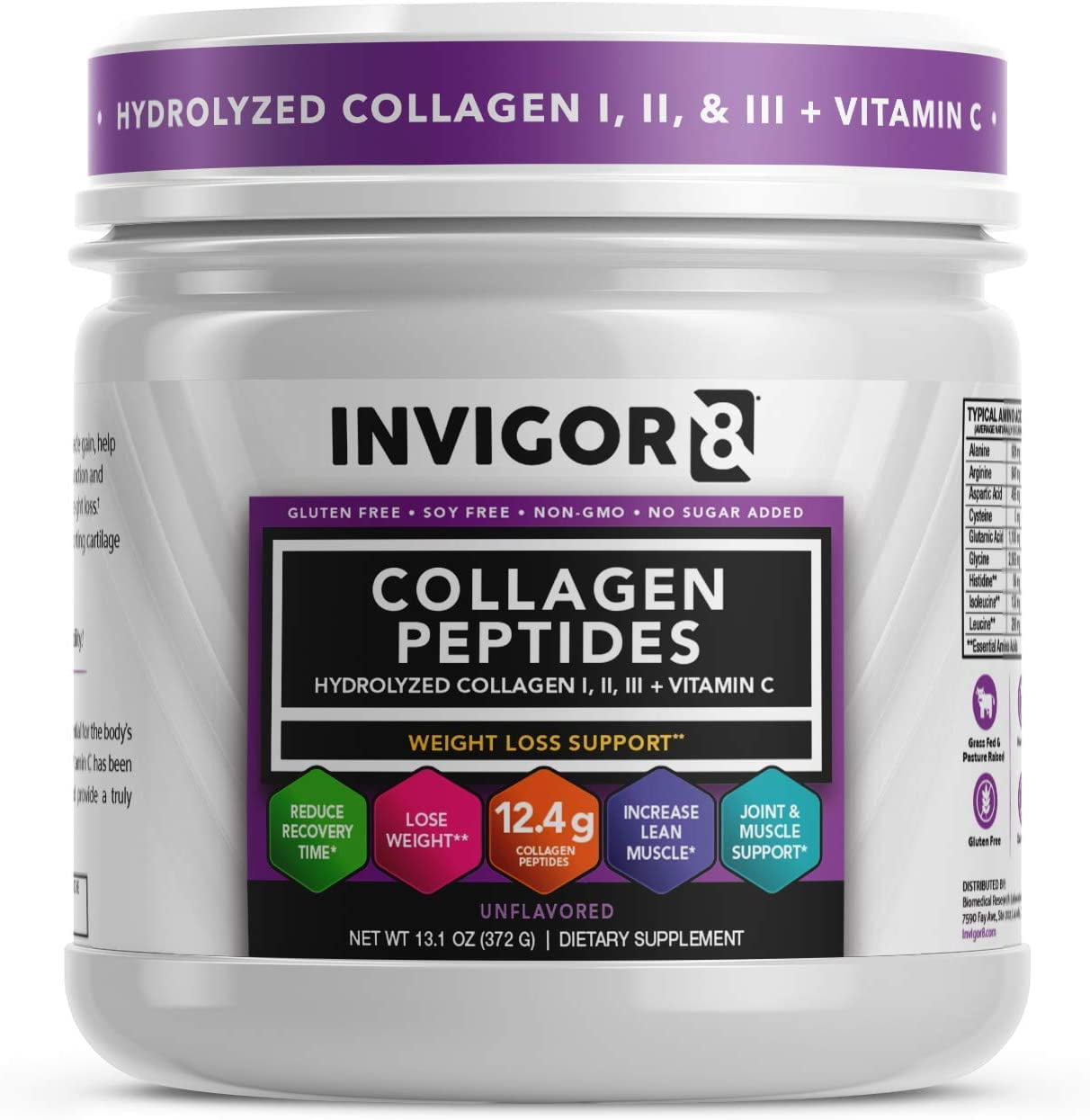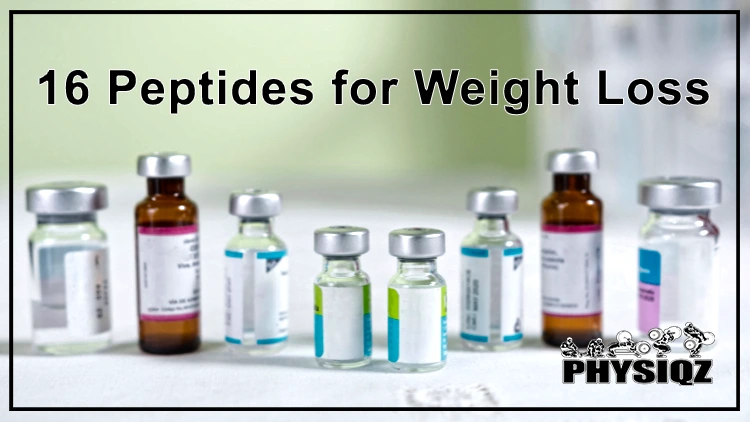Peptides have become a popular solution for weight loss due to their ability to influence metabolism, enhance fat burning, and support muscle preservation. In 2024, various peptides stand out for their proven effectiveness and safety. This guide will walk you through the best peptides for weight loss, focusing on easy choices, proven scientific solutions, and their unique benefits.
What Are Peptides and How Do They Help in Weight Loss?
Peptides are short chains of amino acids that act as messengers in the body. They influence many biological processes like appetite regulation, fat metabolism, and muscle growth. When used correctly, certain peptides can aid in fat loss, improve energy expenditure, and support overall metabolism.
There are several peptides known for their role in weight management:
-
CJC-1295: Increases growth hormone levels, boosting fat loss and muscle gain.
-
Ipamorelin: Encourages the release of growth hormones, promoting weight loss while preserving muscle.
-
Sermorelin: Helps in fat burning by stimulating the body’s natural growth hormone production.
Each of these peptides works differently to target fat loss and increase lean muscle mass, making them some of the most popular options for those looking to lose weight in 2024.
Best Peptides for Weight Loss in 2024: Ranking
Let’s explore the top peptides for weight loss that have gained traction in 2024, with easy-to-understand benefits for each.
A. CJC-1295 with DAC
-
Benefits: Improves fat metabolism, enhances muscle gain, increases energy.
-
How it works: It releases growth hormone, which accelerates fat loss and supports muscle recovery.
-
Best for: Those looking to achieve both weight loss and muscle growth over time.
B. Ipamorelin
-
Benefits: Stimulates the natural release of growth hormone, supports fat burning, reduces hunger.
-
How it works: Works by mimicking ghrelin, the hormone that signals hunger, while stimulating growth hormone production.
-
Best for: Those who want appetite control while maintaining lean muscle.
C. Sermorelin
-
Benefits: Enhances fat burning and muscle retention.
-
How it works: Stimulates the pituitary gland to produce growth hormones naturally.
-
Best for: People aiming for a more natural approach to fat loss.
D. AOD-9604
-
Benefits: Directly targets fat cells and helps with fat breakdown without affecting blood sugar.
-
How it works: Mimics a portion of the human growth hormone (HGH), particularly affecting fat metabolism.
-
Best for: Those wanting to specifically target stubborn fat areas like the abdomen.
Infographic: Peptide Effectiveness for Weight Loss (2024)
Here’s a visual breakdown of peptides’ effectiveness for weight loss, based on factors like fat metabolism, muscle retention, and side effects. The infographic uses color-coded sections for clarity.
| Peptide | High Effectiveness | Medium Effectiveness | Low Effectiveness |
|---|---|---|---|
| CJC-1295 | Fat loss, Muscle growth | Appetite suppression | Minimal side effects |
| Ipamorelin | Appetite control, Fat burning | Muscle recovery | Hormonal impact |
| Sermorelin | Natural fat burning, Muscle gain | Metabolism boost | Rare side effects |
| AOD-9604 | Targeted fat reduction | General weight loss | Non-metabolic effect |
-
High Effectiveness: CJC-1295 and AOD-9604 have shown great results for targeted fat loss and muscle building.
-
Medium Effectiveness: Ipamorelin and Sermorelin focus on appetite suppression and natural hormone production.
-
Low Effectiveness: While some peptides may have minor effects on fat metabolism, their impact is generally less noticeable without other lifestyle changes.
How Peptides Interact with the Body
Peptides for weight loss work by influencing various biological processes. Here’s how they interact with the body to help with fat loss:
-
Appetite Control: Peptides like Ipamorelin mimic the hunger hormone ghrelin, reducing overall food intake by regulating hunger signals.
-
Fat Metabolism: CJC-1295 and AOD-9604 stimulate enzymes like pancreatic lipase and proteinase 3, which break down fats into usable energy.
-
Energy Expenditure: By enhancing glucose homeostasis and energy expenditure, peptides increase the number of calories burned, even at rest.
-
Muscle Preservation: While promoting fat loss, peptides also preserve muscle mass, which helps maintain metabolic rate during weight loss.
How to Use Peptides for Weight Loss
Implementing peptides into your weight loss routine requires knowledge of proper dosage, timing, and administration. Here are some tips on how to safely use peptides:
-
Consult a Professional: Always consult a healthcare provider or endocrinologist before starting peptide therapy. Peptides can influence hormone levels, and a medical professional will guide you based on your individual needs.
-
Proper Dosage: Typical dosage for CJC-1295 ranges from 300 mcg to 600 mcg, depending on goals. Dosage for Ipamorelin is often administered in similar amounts.
-
Administration: Peptides are usually injected subcutaneously (under the skin) or intramuscularly (into muscle). The frequency may vary from once daily to multiple times per week depending on the peptide.
Compare and Contrast: Peptides vs. Traditional Weight Loss Methods
How do peptides for weight loss compare with traditional methods like dieting and exercise? Here’s a breakdown:
Peptides:
-
Pros: Directly influence fat metabolism, increase lean muscle, reduce appetite, and boost energy expenditure.
-
Cons: Require injections and medical guidance, can be expensive, and results are often better when combined with lifestyle changes.
Traditional Methods (Diet/Exercise):
-
Pros: Accessible, no medical intervention required, proven long-term success when done correctly.
-
Cons: Results can be slow, especially for individuals with hormonal imbalances or metabolic conditions like obesity or type 2 diabetes.
The Benefits of Peptides for Weight Loss in 2024
Peptides for weight loss offer several benefits, especially for those who struggle to lose weight with traditional methods:
-
Enhanced Fat Loss: By directly influencing fat metabolism through peptides like AOD-9604, individuals can see faster fat reduction.
-
Improved Muscle Preservation: Peptides prevent muscle breakdown during weight loss, ensuring that lean muscle mass is maintained.
-
Reduced Appetite: Peptides such as Ipamorelin help regulate hunger hormones, making it easier to stick to a caloric deficit.
Potential Side Effects and Risks
While peptide therapy can be effective, it is not without risks. Possible side effects include:
-
Hormonal Imbalance: Peptides can interfere with natural hormone production if misused.
-
Injection Site Reactions: Redness, swelling, or pain at the injection site.
-
Metabolic Fluctuations: Some users may experience changes in blood glucose or energy levels.
Success Stories: How Peptides Have Transformed Weight Loss
The growing use of peptides for weight loss has led to numerous success stories. These real-life cases demonstrate how peptides have positively impacted fat reduction, muscle retention, and overall body composition.
Case Study 1:
-
John, 35: After struggling with metabolic syndrome, John started peptide therapy with CJC-1295 and Ipamorelin. Within six months, he lost 30 pounds of fat while maintaining muscle mass. John noted that his appetite was more manageable, and his energy levels improved drastically.
Case Study 2:
-
Emily, 42: Battling obesity for years, Emily turned to Sermorelin to enhance her natural growth hormone production. After three months of consistent therapy, she lost significant fat, especially around her abdominal area, and experienced better muscle definition. Emily credits peptides for giving her the metabolic boost she needed after traditional methods plateaued.
These stories underscore the power of peptides in overcoming weight loss plateaus and hormonal barriers.
How Peptides Improve Weight Loss in Individuals with Medical Conditions
Peptides are particularly beneficial for people suffering from medical conditions that make weight loss difficult, such as type 2 diabetes, obesity, or non-alcoholic fatty liver disease. Here’s how peptides can help:
-
Type 2 Diabetes: Peptides like CJC-1295 and Ipamorelin assist in regulating glucose homeostasis and improving insulin sensitivity, making them beneficial for people with blood sugar management issues.
-
Obesity: Peptides can be a game changer for people with obesity who have tried diet and exercise without success. Peptides like AOD-9604 target fat metabolism without affecting muscle mass, promoting healthier weight loss.
-
Non-Alcoholic Fatty Liver Disease (NAFLD): For individuals with NAFLD, peptides reduce fat accumulation in the liver and enhance overall fat metabolism, helping to improve liver function and promote fat loss.
By addressing the root causes of weight gain, such as hormonal imbalances and metabolic conditions, peptides provide a highly effective solution for those who have struggled with conventional weight loss methods.
Future Outlook: Peptide Therapy for Weight Loss in 2024 and Beyond
The field of peptide therapy for weight loss is expected to grow rapidly in 2024 and beyond, as more scientific research validates the effectiveness of these compounds. We anticipate the development of newer peptides that target even more specific aspects of fat metabolism and muscle preservation.
Peptides are also becoming more accessible, with a broader range of formulations and delivery methods being explored, such as oral peptides and peptide creams. These advancements will make peptide therapy easier to integrate into everyday life, reducing the reliance on injections and making peptides an even more convenient option for weight management.
Summary
In this article, we’ve explored the best peptides for weight loss in 2024, highlighting CJC-1295, Ipamorelin, Sermorelin, and AOD-9604 as some of the most effective options. These peptides work by influencing key biological processes such as fat metabolism, appetite suppression, and muscle retention. By harnessing the power of peptides, individuals can overcome weight loss plateaus and hormonal imbalances, making it easier to achieve their health and fitness goals.
Whether you’re dealing with conditions like obesity or looking for a way to enhance your weight loss journey, peptides offer a science-backed, proven solution. As peptide research continues to advance, we can expect even more innovative therapies to emerge, offering new hope for those struggling with weight management.
FAQs about Peptides for Weight Loss
-
What are the best peptides for weight loss in 2024?
-
The best peptides in 2024 include CJC-1295, Ipamorelin, and AOD-9604 due to their ability to boost fat loss and preserve muscle mass.
-
-
How do peptides help with weight loss?
-
Peptides stimulate the release of growth hormones, enhance fat metabolism, and regulate appetite for effective weight management.
-
-
Are there any side effects of using peptides for weight loss?
-
Some side effects include hormonal imbalances, injection site irritation, and potential blood sugar fluctuations.
-
-
How long does it take to see results from peptide therapy?
-
Most individuals start noticing changes in fat loss and muscle gain within 4 to 8 weeks of consistent peptide use.
-
-
Do I need a prescription to use peptides for weight loss?
-
Yes, peptides for weight loss are typically prescribed by a medical professional, as they influence hormonal processes.
-
-
Can peptides replace diet and exercise for weight loss?
-
No, peptides should complement a healthy diet and exercise
-
Related Posts :
- Lainey Wilson Gummies 4o Weight Loss 2o3l
- Fitspresso Reviews My Honest Coffee Loophole Weight Loss Results Side Effects And Complaints 811706 E06t
- Quick Easy Juicing Recipes For Weight Loss Morning Detox Tips Qc5g
- Weight Loss Surgery 101 Federal Way Hospital Stays Busy As More Insurance Companies Pick Up The Tab Eecj
- Lil Yachty Weight Gain.html Y1ox



